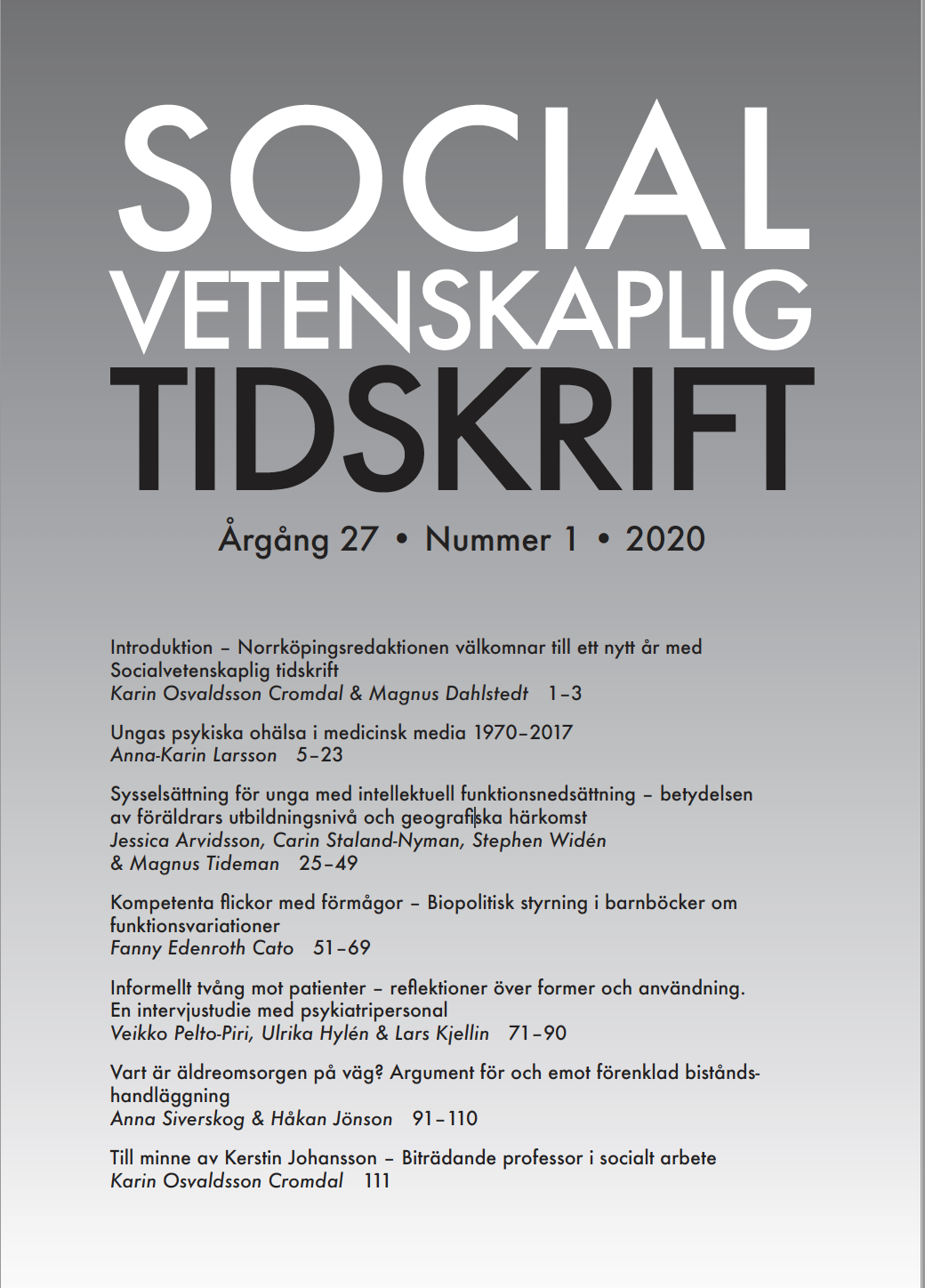Informellt tvång mot patienter
- reflektioner över former och användning. En intervjustudie med psykiatri personal
DOI:
https://doi.org/10.3384/SVT.2020.27.1.3413Abstract
There has been considerable international research on formal coercion in psychiatry in recent decades but less on informal coercion, especially from a staff perspective. This study was based on previous research which identified five forms of coercion in psychiatry: persuasion, interpersonal leverage, inducement, threats and formal coercion. The purpose was to describe the staff’s reflec-tions on the forms and the use of informal coercion against patients. We conducted four focus group interviews with psychiatric social workers, psychologists and physicians at four different clinics. The purpose was to create a reflective conversation about informal coercion. The inter-views were analysed with qualitative content analysis. In addition to the five previously identified forms of coercion we found three other forms in our material: cheating the patient, an upbringing attitude, and using rules and procedures. Participants also described coercion from other stake-holders such as relatives and other authorities. Other reflections were interpreted as professiona-lism and coercion, where the participants stressed the importance of staff members’ approach to patients, having clear communication with patients, individualized care, and good cooperation with each other and with other stakeholders. According to the participants, informal coercion was often used, but at the same time they were hesitant about using it. The participants had very diffe-rent views of how patients perceived informal coercion and how interpersonal leverage should be used. They also reported difficulties in dealing with the informal coercion that relatives and other authorities use, as it may threaten the patient’s ability to recover. Informal coercion should not only be seen as a legal or clinical issue. The fact that there are important ethical aspects in matters of informal coercion should also be acknowledged.
Downloads
Published
How to Cite
Issue
Section
License
Allt material i Socialvetenskaplig tidskrift publiceras sedan 2022 (Vol 28 Nr 2) med omedelbar öppen tillgång (open access), under Creative Commons-licensen CC BY 4.0. Upphovsrätten till innehållet tillhör respektive författare.
Allt innehåll i tidskriften är fritt tillgängligt utan kostnad och får fritt läsas, laddas ned, kopieras, delas, skrivas ut och länkas. När innehållet används måste författare, källa och licens anges. Författaren kan fritt göra sin publicerade text tillgänglig på institutionella och internetbaserade arkiv, exempelvis sitt lärosätes digitala arkiv eller andra tjänster för detta.
Inga publiceringsavgifter tas ut vid publicering i Socialvetenskaplig tidskrift.


